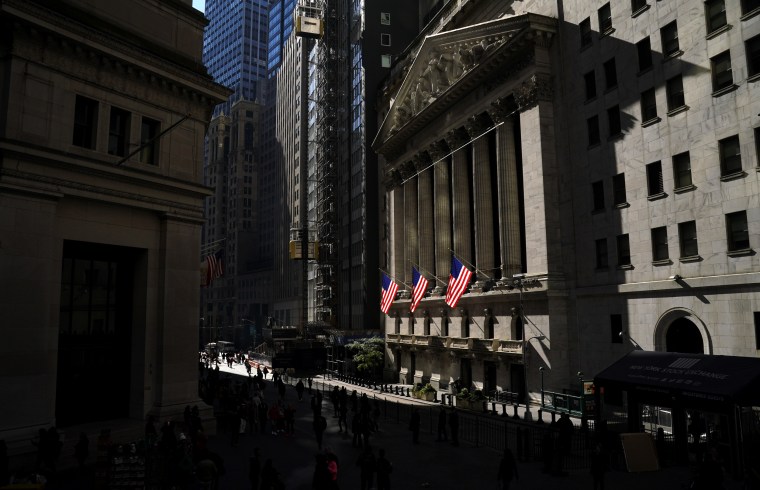Key U.S. market indices closed slightly up on Thursday, with the Dow Jones Industrial Average, Nasdaq, and S&P 500 all notching increases of fractions of a percentage point on the strength of positive earnings and higher retail sales data.
This would be entirely unremarkable, except for the spectacle that consumed political pundits and the news cycle for much of the day: The release of Robert Mueller’s special counsel report after a two-plus-year investigation into whether President Donald Trump or members of his administration colluded with Russia or obstructed justice.
Market observers say the barely-a-ripple Wall Street response to the turmoil in Washington was due to a few factors, a key one of which was Attorney General William Barr’s four-page summary released last month asserting that the special counsel found no evidence of collusion and reached no conclusion about obstruction of justice.
Mark Zandi, chief economist at Moody’s Analytics, said that the expected outcome had already been baked in to market activity as a result of Barr’s summary. “I don't think it was a huge surprise… People digested it, made up their mind about what it said and moved on,” he said.
“It didn’t seem like there were any bombshells. When you see a big reaction from markets on anything, it’s because of the unanticipated,” said Greg McBride, chief financial analyst at Bankrate.com.
Investor nonchalance also was reflected in the VIX, the market’s so-called “fear gauge” that measures volatility. At 12.09, the index ended the trading week nearly even with its April 12 low for 2019 of 12.01. (Markets are closed Friday for the holiday.)
“Things that are big news stories aren’t necessarily things that have a big impact on the economy, corporate profits or the overall market and its valuation,” McBride said.
This is not to say that what goes on in Washington goes unnoticed by investors or ordinary investors: A Bankrate survey released this week found that 44 percent of Americans say the greatest threat the U.S. economy faces in the next six months is the political environment in Washington, far outstripping concerns about terrorism, geopolitical tensions, or even a falling stock market.
“I think what you’re seeing is the angst people feel. The risks to the economy people see due to the political dysfunction in D.C. are the lack of meaningful legislation, the increased partisan rhetoric that threatens to bring about more radical-type legislation on one side or the other. Those are the things that could have an economic impact,” McBride said.
Bankrate found that Republican respondents were more likely than Democrats by four percentage points to cite the political climate as the primary economic threat. Older, wealthier and more educated respondents also identified this as the top risk at a higher rate.
The timing of the report’s release also was fortuitous for the administration. “There’s a lot going on in the marketplace,” Zandi said, pointing to a spate of headlines about IPO activity and quarterly reporting. “This is earnings season, so investors are focused on earnings. Maybe if this had happened at another time of the quarter when investors have less to focus on, it might have had more of an impact,” he said.
Zandi said it would take much higher political stakes for investors to see the outcome of the investigation as a threat to earnings, interest rates or other key priorities. “It’s a pretty tenuous link between the two,” he said. “Unless we get into a constitutional crisis, impeachment proceedings, social unrest — those things would be a problem for investors.”
